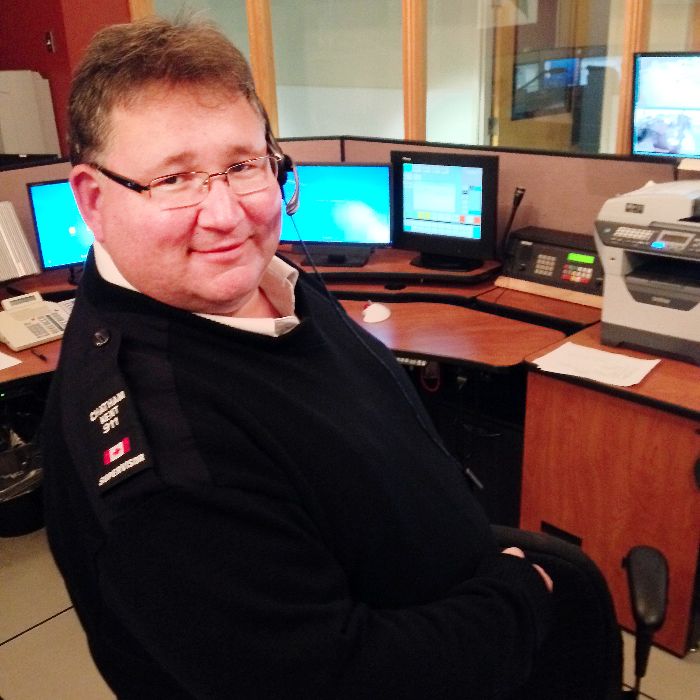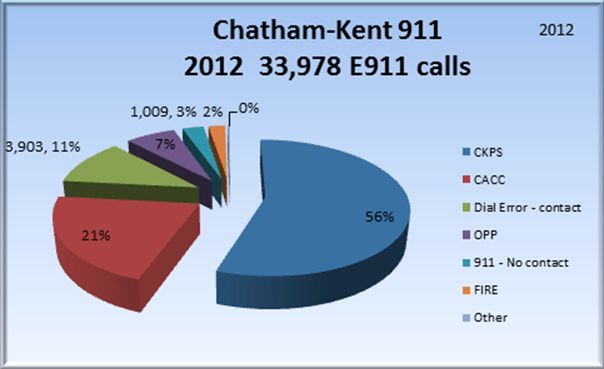
What if you called 911 and got put on hold?
As surprising as it might seem, it happens – but not in Chatham-Kent.
“During peak periods in Metropolitan areas such as Toronto, the system does get overloaded and calls can be temporarily put on hold,” said Brian French, comm centre training supervisor at Chatham-Kent 911/police and fire dispatch.
Affinity Commercial 02 from Chatham Voice on Vimeo.
French credits a combination of skilled staff, resources and integrated technology for keeping the local centre ahead of the curve.
The centre handles more than 230,000 incoming and outgoing calls each year with a staff of 15 operators and two supervisors split into three platoons. Two part-timers are used when needed for vacation relief.
The centre has a 98% ratio of answering calls by the second or third ring.
The Chatham operation handles calls for fire, police and ambulance, dispatching fire and police and forwarding dispatch calls for ambulance to the EMS centre in Wallaceburg.
French said the centre handled just under 34,000 calls last year.

“We handle about 100 911 calls per day and about a third of those are what I call true 911 emergencies involving crime and life-threatening situations. Another third need to be addressed in a non-emergency manner.”
The remainder falls under a wide variety of categories, including hang-ups and accidental calls.
“There is a misconception about accidental calls,” French said. “People think they will be in trouble if they call by mistake, but that isn’t the case. The last thing an operator wants to hear is only a word or two where we aren’t sure why the call ended. We have to respond but we don’t really know what we’re responding to. It’s much better just to tell us the call is in error.”
French said a number of accidental calls each year are due to parents giving their young children old cell phones.
“People think that if the sim card is removed, the phone won’t work, but by law every cell phone has to be able to call 911, even without a card. We ask people to make sure the phone has no battery if they let a child use it as a toy.”
More than half of the calls received by the centre are via mobile phones, but new technology makes it simple to detect where the caller is.
“A few years ago we had to use a triangulation method with cell towers, but new smart phones have GPS capability so we can tell where a call came from usually within a few metres” he said.
French said one of the reasons for the centre’s high standards is its staff.
“When you call 911 in Chatham-Kent, you’re speaking to a local person” he said.
“We’re working with people in distress and it’s our goal to make sure we get the right resources to the right location as quickly as possible. It means more than just getting the correct address.”
French said communities using OPP dispatch have their calls answered in North Bay, which then transfers the call to the appropriate OPP detachment.
One misconception about 911 calls is that responders aren’t dispatched until the call is completed. French said once the call is taken, response is immediate.
“We’ve had the responders dispatched right away but we keep the caller on the line while we get as much information as possible. If it’s a fire, we want to know the colour of the smoke because that might indicate if chemicals are involved. In the case of a motor vehicle accident, we want to know how many people are involved.
The more we know, the more we can help.”






